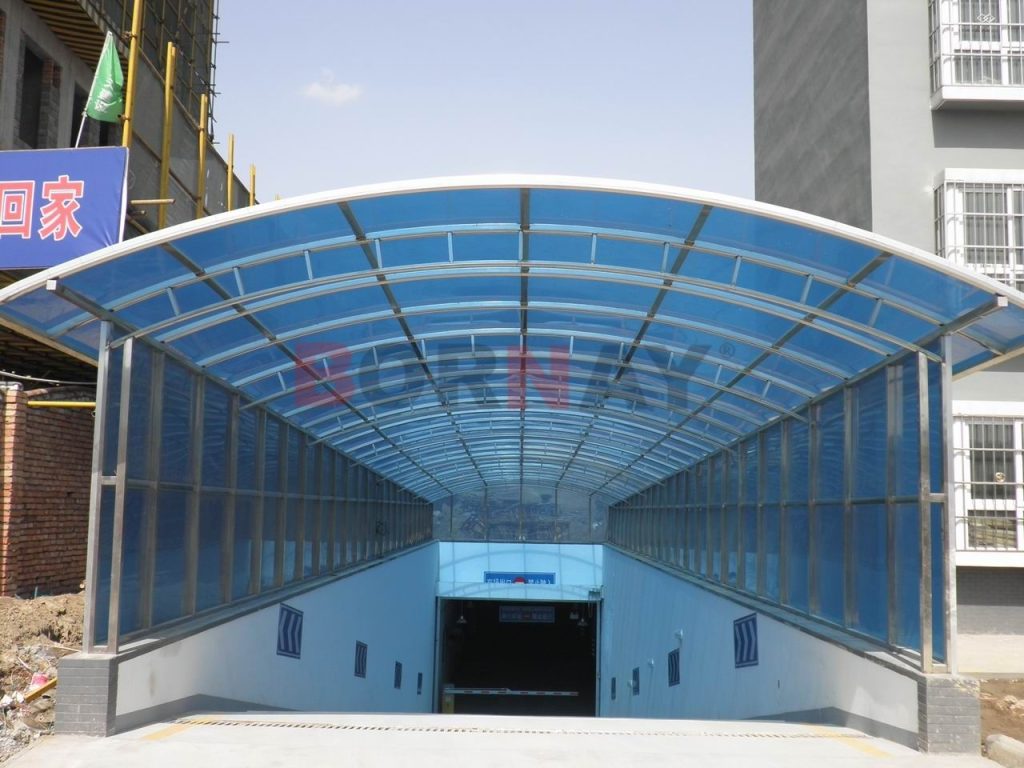bonai@tilefrp.com
Find the advantages and characteristics of FRP roof panels

Fiber Reinforced Polymer (FRP) roof panels offer several advantages and possess distinct characteristics that make them a popular choice in the construction industry. Here are some key advantages and characteristics of FRP roof panels:

Lightweight: FRP roof panels are incredibly lightweight compared to traditional roofing materials like metal or concrete. This characteristic makes them easier to handle and install, reducing the need for heavy machinery and minimizing the structural load on the building.High Strength-to-Weight Ratio: Despite their lightweight nature, FRP roof panels exhibit exceptional strength. They are reinforced with fibers, such as glass or carbon, which provide excellent tensile and flexural strength. This high strength-to-weight ratio ensures the panels can withstand heavy loads and impact without compromising their structural integrity.Durability: FRP roof panels are highly durable and resistant to various environmental conditions. They have excellent resistance to corrosion, moisture, chemicals, and UV radiation. This durability ensures a longer lifespan for the roof panels, reducing the need for frequent repairs or replacements.Versatility: FRP roof panels are available in a wide range of sizes, shapes, and profiles, allowing for versatility in design and application. They can be easily molded and customized to suit specific architectural requirements, making them suitable for various roofing applications, including commercial, industrial, and residential projects.Transparency: Some FRP roof panels are translucent or transparent, allowing natural light to penetrate the building interior. This feature can help reduce the need for artificial lighting during the day, resulting in energy savings and a more comfortable indoor environment.Thermal Insulation: FRP roof panels possess excellent thermal insulation properties, effectively minimizing heat transfer between the building interior and the external environment. This characteristic helps maintain a more stable and comfortable indoor temperature, reducing the reliance on heating and cooling systems and lowering energy consumption.Fire Resistance: FRP roof panels can be manufactured to meet specific fire resistance standards, making them a safe choice for buildings. They have inherent flame-retardant properties and can be further enhanced with the inclusion of fire-retardant additives during the manufacturing process.Ease of Installation and Maintenance: FRP roof panels are relatively easy to install due to their lightweight nature. They can be quickly and efficiently installed, saving time and labor costs. Additionally, FRP roof panels require minimal maintenance, as they do not corrode, rust, or decay like traditional roofing materials. Routine cleaning and occasional inspections are usually sufficient to keep them in optimal condition.Cost-Effective: While the initial cost of FRP roof panels may be higher than some traditional roofing materials, their long-term benefits often outweigh the upfront investment. The lightweight nature of FRP panels reduces structural requirements and installation costs. Moreover, their durability and low maintenance needs contribute to long-term cost savings by minimizing repairs and replacements.

In summary, FRP roof panels offer a range of advantages, including lightweight construction, high strength-to-weight ratio, durability, versatility in design, transparency, thermal insulation, fire resistance, ease of installation and maintenance, and overall cost-effectiveness. These characteristics make FRP roof panels an attractive option for various roofing applications, providing long-lasting and sustainable roofing solutions.



